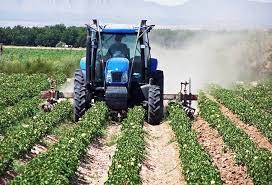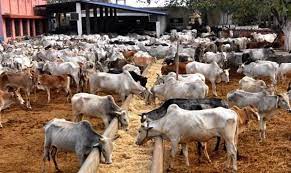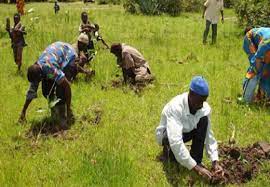Resilient, and sustainable agri-food system means better production, better nutrition, better environment and a better life, that was the focus of Food and Agriculture Organisation (FAO) 13th regional stakeholders meeting, John Oba, report
The recently Cadre Harmonise (CH), food security analysis released last week indicts that over 19.4 million people in Nigeria may be faced with food shortage by August 2022, this is even as it stated that 14.4 million people are already facing emergency food crisis and insecurity in 21 states.
It is evidence that countries in West Africa and the Sahel have witnessed negative impacts of climate change, declining natural resource base, recurrent natural and human-induced disasters, and rising insecurity.
As part of efforts to address this concerns in the West Africa member state, the Food and Agriculture Organisation (FAO) held it 13th multi-disciplinary team meeting sub-regional office in Abuja to x-ray the impact of it programmes in the West Africa region and to plan the work to be carried out, for the next biennium.
The meeting with the theme: ”Joining efforts to build resilient Agrifood systems in West Africa and Sahel’, was also to deliberate on the current food and nutrition situation in the West Africa subregion and its determinants, as well as on the needs and requirements of the member states and key partner institutions to mitigate the situation.
The meeting came up with several recommendations on how to assist the region combat the problem of food security, nutrition and resilience. The meeting pinpointed the need to support Livestock and pastoralism for conflict prevention, strengthening animal health using an One Health approach especially PPR and other TADs and improvement of feed availability and sustainable use of natural resources.
It also recommended continuous strengthening of member states capacity to collect and analyze data for evidence-based decision making in support of the transformation of agri food systems; that FAO continues to strengthen the efforts to consolidate the partnership with sub-regional institutions, UN agencies, private sector, and support the implementation of the regional initiatives for the resilience of agri-food systems including initiatives towards improved intra-regional trade of agricultural products, inputs and livestock.
Other recommendations were; “Increase interactions and collaborate with research, extension institutions and producers organizations in the development and adoption of innovative products and technologies to support agri-food systems transformation; Present to the FAO Regional Conference for Africa, the results of the government consultations on the scope of the new strategic framework in response to national priorities and the SDGs;
“Continue SFW’s support to countries and subregional organizations in line with the results of the 15 countries Governments consultation, which are already reflected in SFW four (4) priority areas; Foster the implementation of the Humanitarian-Peace-Development nexus approach in the context of protracted crises, with focus on local opportunities in terms of resources such as land, water and human resources (youth in particular and positive narratives;
“Engage youth and women at the heart of agri-food systems transformation interventions and related projects and programmes; Leverage South-South cooperation to strengthen knowledge sharing, up scaling good practices, capacity building and technical assistance; and strengthen the adequacy of the regulatory environment to increase agricultural production, improve nutrition, raise the standard of living of rural populations and contribute to economic growth in the sub region.
According to stakeholders during the meeting, proper implementation of these recommendation will immensely improve the food and nutrition position of the region.
Earlier, while declaring the three-day meeting open, the Nigeria Minister of Agriculture and Rural Development, Dr. Abubakar Mahood, said meeting came at an opportune time when the sub-region is faced with the devastating effects of climate change, associated challenges of a declining natural resource base and rising security issues threatening food supply, lingering loss of income sources among the population of agriculturally based livelihoods and small business from the effect of the COVID-19.
He said it is important not to overlook the need to find solutions to prevailing food and nutrition crisis in the subregion and factors leading to it. I am glad with the efforts already being made by FAO Nigeria to align our national agriculture and food security goals with the FAO subregional priorities through a high-level consultative exercise with my Technical Directors and other relevant MDAs.
He said the current Administration is making deliberate efforts to increase investment and mainstream food and nutrition into relevant development processes and am pleased to inform you these efforts have started showing positive results in our journey to ensure national self-sufficiency in priority food commodities including rice and other cereals.
According to him: “For Nigeria, the Food and Nutrition sub-sector is to contribute to the transformation of our human capital capacity and catalyze our economic and social development through improved productivity, reduction of disease burden and poverty reduction. The food and nutrition sector is prominently covered in the country’s medium-term Plan – Nigeria Development Plan 2021-2025 – which focuses on building a thriving and sustainable economy; enlarging agricultural output for food security; improving access to quality education, affordable health care and productivity; and enhancing social inclusion and reducing poverty. In this regard, the linkages between agricultural development with food security, nutrition, health, environmental sustainability, rural development, and peacebuilding is very clear.
Giving his welcome address, FAO Nigeria Director, Mr Fred Kafeero, said West Africa and Sahel are indeed facing escalating threats which demand that we act immediately to safeguard livelihoods, transform our agri-food systems to sustain our planet.
“The region today suffers from the multiple burden of malnutrition – with the coexistence of several forms of malnutrition. One out of every 3 children is still stunted, coupled with high levels of deficiencies in essential vitamins and minerals as well as rising levels of overweight and obesity linked to poor dietary habits and lifestyle.
”There is increasing incidence of non-communicable diseases such as diabetes, hypertension, and cancers. Our health bills remain high due to poor nutrition which accounts for over 45% of deaths in children under-five and increasingly accounts for a high proportion of deaths in middle age and later life.”
Giving his remarks, the United Nations Resident and Humanitarian Coordinator in Nigeria, Mr. Matthia Schmale, noted that changes in food demand in the sub-region is becoming conspicuous both in total quantities needed, food preferences and quality.
“I am informed that the subregional food economy, is the biggest employer in West Africa and is projected to reach USD 480 billion in 2030 with the non-agricultural sector expected to represent 49% of the value added. These are significant changes that provide great prospects for the West African food system to increase production, value added, job creation and food security.”
Schmale said the focus of FAO’s new strategic framework on sustainable natural resource management, coupled with social aspects that must be addressed if the system is to be fair, inclusive and is well founded on the principle that the more diverse an agricultural system, the greater its ability to adapt to climate change and other shocks.
“I believe, therefore, that this meeting could not have come at a better time, given the need to align the FAO strategic frameworks with the priorities of the governments in the subregion to address a number of structural policy constraints which continue to threaten the ability of West Africa to seize these opportunities for building resilient Agrifood Systems in the region.”
The Sub Regional Coordinator FAO West Africa, Mr. Robert Guei, said FAO has chosen to focus on innovation for sustainable agricultural production; blue transformation; “One Health” approach; equitable access to resources for small producers; and digital agriculture.
He said FAO aims to improve nutrition in all its forms, in particular by promoting nutritious foods and increasing access to healthy diets.
“Protect and restore terrestrial and marine ecosystems, promote their sustainable use and facilitate adaptation to climate change (reduction, reuse, recycling and waste management). Promote inclusive economic growth by reducing inequalities (between urban and rural areas, rich and poor countries, men and women),”




